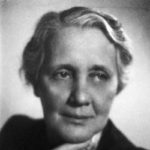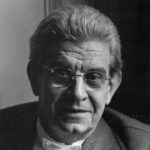Exploring the Unconscious: Arts, Science and the Humanities

- This event has passed.
What’s uncanny in the Unheimliche?
Saturday, December 12, 2020 @ 10:00 am - 12:00 pm
A long psychoanalytic tradition has viewed the Freudian uncanny (Unheimliche) as a variant of anxiety or anguish, and thus assigns the uncanny to the psychoanalytic theory of anxiety. In this contribution, starting from Freud’s 1919 text, Benvenuto shows how the uncanny can also not produce anguish, but even and above all a sense of perplexity as to what interpretive key (naturalist or magical-supernatural) to attribute to certain events. Referring back to T. Todorov’s essay on littérature phantastique, Benvenuto recalls how modern this sense of the uncanny actually is (the literary genre of the “uncanny” makes its first appearance at the end of the 18th century), which opens up the question of the historicity of the unconscious. Obtaining an uncanny effect requires that certain subjectivity which came out of the Enlightenment.
According to Benvenuto, the uncanny is an experience of what he calls the “psychosis of everyday life”, together with déja-vu, the feeling of derealization, non-psychotic erratic hallucination, and acting out. Both literature and cinema skillfully exploit the capacity to put us into a state of “routine psychosis”, in the sense that the uncanny can seize anyone, not just psychotics.
It is along these lines that Benvenuto shows the oscillation of the Freudian interpretation of the uncanny between Verdrangung (repression) and uberwinden (overcoming, surmounting), that is, between an explanation based on an individual unconscious (repression) or instead on a history of subjectivity (overcoming) as produced by the Enlightenment.
Benvenuto will be sending his still unpublished (in English) article wherein he will elaborate on his analysis of the uncanny.
SPEAKER


